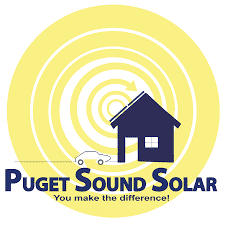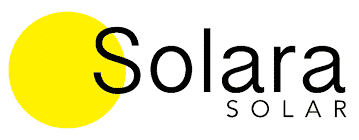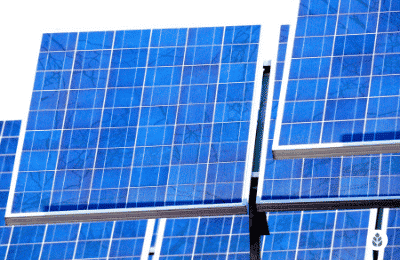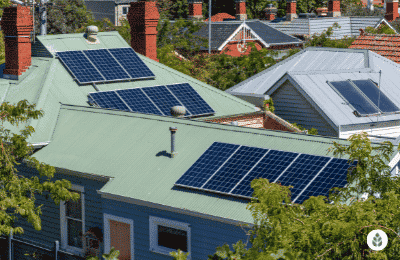
How Much Do Solar Panels Cost in Washington? (2024 Savings Guide)
In this EcoWatch guide on the cost of solar panels in Washington, you’ll learn:
- What the average cost of going solar in Washington is
- How Washingtonians can save money when going solar
- Which local installation companies have the best prices
Each product and or company featured here has been independently selected by the writer. You can learn more about our review methodology here. If you make a purchase using the links included, we may earn commission.
Washington is well-known for its cloudy and rainy weather, which leads many people to believe that solar power isn’t a viable option. While the climate is a challenge, solar panel systems in the area still pay off in a big way.
However, the savings that solar energy offers comes with a significant up-front cost: Nearly $34,000 for a home’s typical solar panel array.
A variety of factors can influence the price you’ll pay. In this guide, we’ll discuss the typical cost of solar panels in Washington State. We’ll also explain what factors influence your total price, how to save money on your solar project and which payment options are the most beneficial.
What Will Your Solar Panel System Cost in Washington?
The average cost of solar panels in Washington is $33,600, but this is before a federal solar investment tax credit. After the credit, your net cost typically falls to about $23,520.
This pricing is based on the local average cost per watt to install panels — $3.36 — and assumes that you’ll need a 10 kilowatt (kW) system, which is standard in the state.
The primary driving force behind your system installation cost is the size of the system you need, which is based on your energy usage. The table below includes a quick look at average pricing based on your energy needs. Your most recent utility bill should give you some indication of your regular energy usage.
| Solar System Size | Energy Use (per month) | House Size (sq ft) | Total Cost | Cost After the Federal ITC | Energy Savings (over 25 years, after system is paid off) |
| 7 kW | 700 kWh | 1,600 | $23,520 | $16,464 | $6,972 |
| 8 kW | 800 kWh | 1,800 | $26,880 | $18,816 | $7,968 |
| 9 kW | 900 kWh | 2,000 | $30,240 | $21,168 | $8,964 |
| 10 kW | 1,000 kWh | 2,200 | $33,600 | $23,520 | $9,960 |
| 11 kW | 1,100 kWh | 2,400 | $36,960 | $25,872 | $10,956 |
| 12 kW | 1,200 kWh | 2,600 | $40,320 | $28,224 | $11,952 |
| 13 kW | 1,300 kWh | 2,800 | $43,680 | $30,576 | $12,948 |

Puget Sound Solar

Local Service
Average cost
Pros
- Representatives are experts on local policies
- Many years of experience
- Comprehensive service offerings
- Excellent reputation
Cons
- Limited service area

Solara Solar

Local Service
Average cost
Pros
- Outstanding customer service
- Representatives are experts on local policies
- Many years of experience
Cons
- Limited service area

Blue Raven Solar
Pros
- Industry-leading in-house financing
- Competitive pricing
- Excellent reputation
Cons
- Doesn't offer solar batteries (coming 2022)
How Do Washington’s Solar Prices Compare to the National Average?
Going solar in Washington State is more expensive than it is in most other states for two reasons. First, the average cost per watt to install solar panels in the Evergreen State is $3.36, which is just above the national average of $3.33. That means every kW you install in Washington will cost you close to what it would in most other states.
Second, Washington residents use more electricity than most U.S. homeowners, averaging 969 kilowatt-hours (kWh) per month compared to the national average of 881 kWh. Higher energy demands mean a larger system is required to offset those needs, and more equipment means higher installation prices.
Unfortunately, the higher prices in Washington are coupled with below-average savings, as the electricity you offset with your panels is cheaper in your area than it is in most states. Still, though, most residents pay off their systems using energy savings in 16 years and then save an additional $14,213 or more over the life of their equipment.
What Are the Main Factors of Solar System Costs in Washington?
While the average solar array in Washington costs around $23,520 after the federal solar tax credit, prices typically range from $16,464 up to $30,576. The potential range is so wide because there are a handful of factors that can have an influence on the total. These include the following:
- How much energy you use monthly
- The efficiency rating of your panels
- Any add-on products you choose
We’ll explain why each of these factors is so influential in regard to your conversion costs in the following sections.
Your Monthly Energy Demands
Your system should always be sized to meet or exceed your energy demands, so your monthly electric bills and your energy needs play a major role in your system total. The more power you consume each month, the more panels you’ll need to offset that rate of consumption, and the more your array will cost overall.
Most Washingtonians consume around 969 kWh per month, which typically means you’ll need a 10 kW system. This is 1 kW larger than most Americans need.
We strongly recommend having a professional size your system for you, as they can take things like local weather and tree coverage on your property into consideration to make sure your production will overcome your consumption and maximize your savings. You’ll pay more for a larger system, but in most cases, the added equipment will pay for itself in Washington.
Your Panel Efficiency
Each panel brand has an efficiency rating, which tells you what percentage of the sunlight that hits the panel can be absorbed and converted to usable electricity. The higher the efficiency rating, the more power your panels will generate for your home in all conditions.
Efficiency rating is a crucial component to consider in Washington because the state receives less sunlight than most others. Residents see just 152 sunny days per year, which is about 75% of the national average and one of the lowest sunny day ratios in the country. Low sun conditions mean lower rates of solar production, so high-efficiency panels are necessary in the area to maximize production and energy savings.
Given the minimal sunlight in the area and the above-average energy demands, we strongly suggest choosing a panel with a high efficiency rating. This will help ensure your panels can keep up with demand and continue saving as much as possible on your utility bills.
Add-On Products You Choose
Another important consideration is the number of add-on products you have installed alongside your panels. Many Washington homeowners opt for solar batteries, as these provide power through blackouts but can also help push up savings over time.
In some states, “net metering” policies allow you to earn credits for the solar energy you produce above and beyond what you use in your home. This helps you offset your costs when you need to use energy from the grid, like at night or on an overcast day.
Washington State doesn’t have a great net metering policy, though which means the excess energy you bank won’t cover an equal amount of power when you need it. As such, many residents install solar batteries instead, which allows you to store excess energy and use it when you need it.
Installing a single solar battery will add approximately $10,000 to your system total, but we sometimes recommend them for residents who have a less appealing net energy metering program, as they can lead to higher savings.
Additional Costs of Going Solar in Washington
Solar panels make up the majority of the cost of your installation, but there are some other things you’ll need to pay for alongside the panels. We’ll include a list of these other costs below and explain how much each can add to your total.
- Additional solar equipment: Your photovoltaic (PV) panels will make up the majority of your system price, but there are other less expensive components that you’ll also need to purchase. These include things like inverters, wiring, conduits to protect the wiring, racking systems and more. These can add a few hundred dollars to your solar panel installation total in some cases.
- Building permits and inspections: Much like any other home renovation or home improvement project, installing rooftop solar panels will require building permits. Most municipalities in Washington charge a permit filing fee, and some also charge an inspection fee to close out the permits. These fees can range from around $50 up to a few hundred dollars. Your installation company should be able to include accurate permit fees on your solar quote.
- Interconnection application fees and inspections: Connecting your system to the grid is necessary if you want to take advantage of net metering and maintain access to electricity when your panels fail to produce, like at night or on cloudy days. Most electric companies in Washington charge a fee to apply for interconnection and get the mandatory inspection completed. The fee is usually around $50, but it can be upward of $100, depending on your utility company.
- Installation labor and equipment markup: In addition to paying for equipment and permitting, you’ll also need to pay for the labor to design and install your system. Your installer may also mark up the cost of your equipment. These two things can bump up your prices by thousands of dollars, so we’ve included average labor costs in the average prices we shared above.
Watch Below: Is Solar Actually Worth It? What’s True vs What’s a Myth
What Maintenance Costs Can Solar Owners Expect in Washington?
Thankfully, there are virtually no required maintenance costs for solar equipment in Washington. Some homeowners get their panels washed one to two times per year to keep pollen and dirt off of the surface.
An accumulation of debris on your panels can reduce their energy production a bit, but it’s usually not substantial enough to require panel cleaning. For most Washington solar customers, there will be no ongoing maintenance costs, especially since the abundant rainfall should keep them relatively clean.
Plus, issues with the internal components, like wiring and individual solar cell performance, are usually covered under your manufacturer’s warranty. The average equipment warranty in the solar industry lasts for 25 years, so you shouldn’t need to pay for any major maintenance or repairs either
Which Solar Financing Options Will Help You Save the Most in Washington?
There are four common ways to finance solar panels: with cash, a solar loan, a solar lease or through a power purchase agreement (PPA). Each method has its upsides and drawbacks, and the one you choose will play a significant role in how much you pay initially and over time for your PV system.
A cash purchase is the best option, in our opinion. You own your panels immediately and don’t pay interest on the purchase price, so you pay the least over time and see the shortest payoff period. That also means your long-term savings will be as high as possible. However, cash purchases aren’t always realistic, as the sticker price can be quite high.
Solar loans make going solar far more accessible because they often come with no down payment requirements and just require a credit check. However, since you’re financing the system, you’ll pay interest that will extend the payback period and increase your overall system cost. For many homeowners, this is one of the best financing options.
A solar lease involves renting the panels and using the power they generate to save on your electric bills. You’ll have a fixed monthly rental cost for the duration of the lease, so you’ll never own your panels or see a payoff period. Since you never own your panels, you can’t take the federal tax credit if you lease your system. However, you can save money on your electricity bills and you’re helping the environment at the same time.
Leases save way less over time than cash purchases and loans, but they don’t have the same credit requirements that loans do, and they have no down payment requirements.
A PPA is similar to a lease in that you never own your panels and can’t take the federal credit. The structure is a bit different, though. You don’t pay a monthly fee but instead agree to buy power from the company that installs the system at a rate that’s a little below what you’d pay to your utility company. PPAs are the option that we recommend the least often.
If you’re not sure which option is best for you, we suggest starting by getting an estimate for your solar power system using our solar calculator. Once you know roughly what your solar array will cost, you can figure out which payment options you can afford.
Many of the best local solar installers in Washington don’t even offer leases or PPAs. If you’re looking for availability for all options, we recommend checking out SunPower and Tesla, both of which accept all four payment options.
The table below includes some information about the upfront and long-term costs you can expect for each of the financing options we’ve discussed above.
| Financing Method | Total 25 Year Savings | Upfront Costs (after the ITC) | Monthly Payments | Payback Period |
| Cash | $14,213 | $23,520 | $0 | 16 years |
| Loan | $9,000 | $0 | $100–$250 | 20 years |
| Lease | $4,000 | $0 | $95 | N/A |
| PPA | $3,000 | $0 | $95 | N/A |
What Are Other Ways You Can Save When Going Solar in Washington?
Given the high cost of going solar in Washington, most homeowners understandably look for ways to save on solar panel installation prices. There are a few things you can do to help keep either upfront or long-term costs down, depending on your goals. These include the following:
- Choose high-efficiency panels
- Install a solar battery
- Take advantage of local incentives
We’ll explain how each of these can save you money in the following sections.
Choose High-Efficiency Panels
Since Washington gets so little sunlight compared to other states, we strongly recommend you choose a panel brand that has an above-average efficiency rating. Maxeon panels from SunPower are, in our opinion, the best solar panels for residential solar systems. High-efficiency panels also help address above-average energy demands and overall energy costs in Washington state.
In Washington, you need to make the most of the sun that does hit your panels. While you’ll pay more for high-efficiency monocrystalline panels than you would for a lower-efficiency monocrystalline or polycrystalline panel, you’ll usually see a higher return on your solar investment over time.
Install a Solar Battery
As we mentioned earlier, Washington mandates net metering, but it’s not the most generous policy. Most companies use a rate that’s lower than the retail cost of electricity, which is less beneficial and saves less on utility bills in the long run.
Installing a solar battery will drive up your solar panel installation costs, but it will also give you access to excess energy at the full retail rate since you don’t need to buy it back from your power provider. Especially since sunlight is so scarce in the state, it’s a good idea to invest in a battery to maximize the value you get from the sunlight that is available.
Take Advantage of Solar Incentives
Finally, we suggest you take advantage of as many solar tax incentives and other perks as you can. All residents have access to the federal tax credit, which provides an average potential savings of just over $10,000.
You can also take the property tax exemption to save on property taxes after conversion and the Renewable Energy System Incentive Program. This program offers energy credits for all solar production regardless of how you use the energy and lasts for eight years after installation. You can earn up to $5,000 in credits per year, although the average is around $720 annually.
What Are the Typical Costs of Washington’s Solar Installers?
Your solar power system cost will depend quite heavily on the installer you choose to handle your solar project. Each installer charges different labor prices and equipment markups, so an identical solar energy system from two different companies could be thousands of dollars apart in total price based on these differences.
The table below includes some relative pricing information for five of the best solar installers in Washington, plus our ratings and scores from the Better Business Bureau (BBB).
| Solar Company | Superlative | EcoWatch Rating (out of 5.0) | BBB Rating | Average Cost ($–$$$$$) |
| Puget Sound Solar | Solar Veteran | 5.0 | A+ | $$$ |
| Solara Solar | Solar Veteran | 4.5 | A- | $$$ |
| SunPower | Best National Provider | 5.0 | A+ | $$$$ |
| Tesla | Best Technology | 4.5 | N/R | $$ |
| Northwest Renewables | Outstanding Regional Installer | 4.5 | A+ | $$$$ |
How Are Solar Costs and Regulations Trending In Washington?
The cost of solar equipment in Washington has decreased by 53% over the past decade, according to the Solar Energy Industries Association (SEIA). With solar production becoming more streamlined and equipment getting more efficient, we expect that downward trend to continue in the Evergreen State in the near future.
As far as solar incentives and policies go, we also expect things to stay stagnant if not improve. The state has an aggressive renewable portfolio standard (RPS) that calls for 100% of the state’s electricity to come from clean energy sources by 2045. Since RPS goals typically drive changes to solar policies, we don’t expect any negative changes to regulations and policies in the near future. If anything, they’ll get more generous.
With prices lower than ever before and incentives and rebates not expected to expire or disappear anytime soon, now is a great time to convert to solar energy in Washington. You can use the tool below to get solar quotes customized for your home to start the process today.
The cost information presented in this article is derived from a comprehensive analysis, incorporating data from multiple industry sources. The average cost per watt per state was calculated based on figures from Consumer Affairs, Energy Sage, and Berkeley Lab’s Electricity Markets & Policy Department. Additionally, monthly energy consumption and the average monthly cost of electricity were sourced from the U.S. Energy Information Administration, ensuring a well-rounded and accurate representation of the information presented.
FAQs: Washington Solar Panel Costs
Below, we’ll answer some of the most common questions we get asked about solar panel costs in the State of Washington and what the estimated return on investment is in the area.
In most cases, yes. Many property owners believe the lack of sunny days and below-average electricity rates in the state mean solar isn’t worthwhile.
While going solar in Washington isn’t quite as lucrative as in other states, most solar power systems there still pay for themselves over time. You can then save an additional $14,213 on average, even given the low electricity costs. Long-term savings can be even greater in areas where energy rates are higher, like Seattle.
The average cost to install solar panels in Washington State is $33,600, or roughly $23,520 after the federal government’s income tax credit is applied. Most solar systems in the area will total between $16,464 and $30,576 after the credit based on the system size you need to offset your energy demands.
Most Washingtonians see solar savings that pay off their panels in around 16 years, which is quite a bit longer than the national average. However, since panels usually last and are warrantied for a minimum of 25 years, that still leaves nearly a decade of savings on your energy bills after your system is totally paid off.
Top Solar Installers in Washington Cities
Comparing authorized solar partners
-
- Representatives are experts on local policies
- Many years of experience
- Comprehensive service offerings
- Excellent reputation
- Limited service area
A+Solar Veteran
Having trouble deciding? Click below and use our process to receive multiple quotes instead:

 233k
233k  41k
41k  Subscribe
Subscribe 







